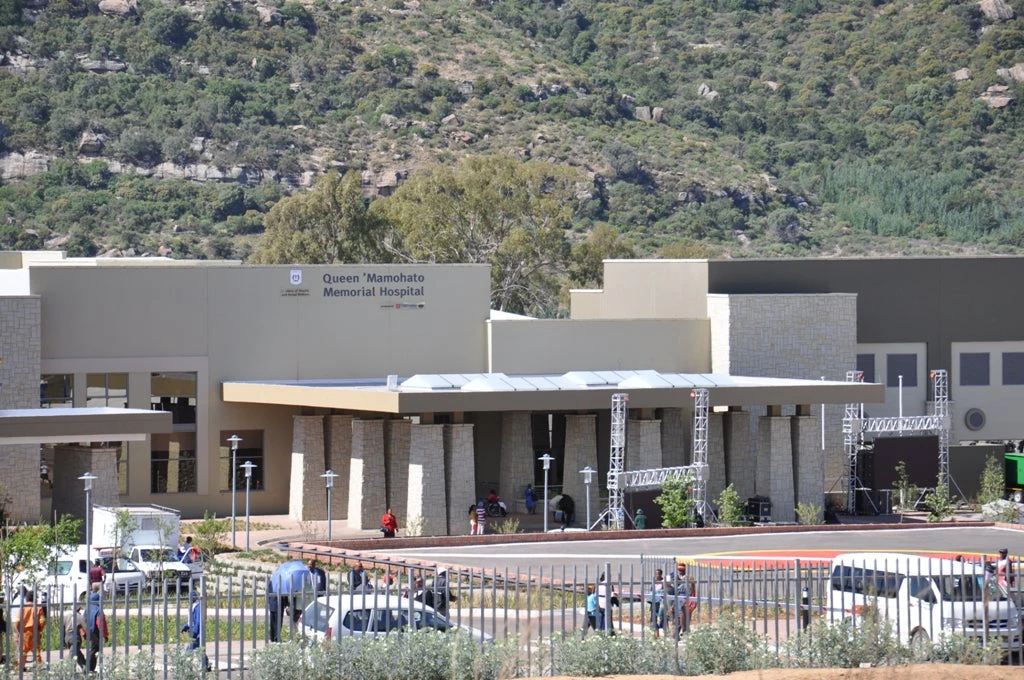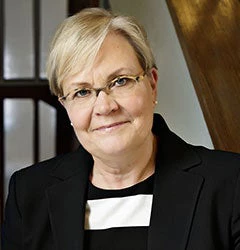Thousands of Basotho joined HM King Letsie III last Friday at the inauguration of a state-of-the-art hospital in Maseru, Lesotho. The new hospital, together with its three filter clinics, is bringing modern, high-quality health care to about half a million people—or a quarter of Lesotho’s population—living in Maseru district, and also serving the country as a revamped national referral and teaching hospital.
Prime Minister Mosisili reminded the audience of Lesotho’s history as a British protectorate. “The protectors gave the country its first national hospital in 1957 and named it Queen Elizabeth II after their Queen,” the PM said. “The new hospital is ours and we named it after our Queen, ’Mamohato.”
Why is this hospital so important? It symbolizes a fundamental change in publicly-funded health services in Lesotho. The transformation in the country's health sector is supported by a unique partnership between the government and the private sector that is truly exciting as Africa looks for ways to reach the 2015 Millennium Development Goals, especially those related to saving mothers and children and fighting HIV/AIDS.
The new public-private partnership, one of the first of its kind in Africa, is managed by the Tsepong consortium, led by Netcare, a leading South African health care provider. Netcare’s CEO Richard Friedland said that the new hospital is their third largest public-private partnership hospital and that his company is committed to achieving results.
The filter clinics opened in April 2010 and have maintained zero maternal mortality (1,000 deliveries so far), an important achievement in a region with high maternal mortality rates. What is truly remarkable is that the running costs of the new hospital are no more than in the old defunct QEII. Patients pay the same fees as before.
The private sector arm of the World Bank Group, IFC, provided technical assistance to design and implement the facility as a public-private partnership, working closely with the Ministries of Health and Finance. IFC’s work has been fully aligned with Lesotho’s health sector reforms, which are supported by the World Bank's health team. A grant of US$6.25 million was provided through the World Bank-administered Global Partnership for Output-Based Aid to support the process.
It was simply wonderful to be able to share in the national pride of Lesotho. As the Queen said to me, "This beautiful new hospital brings us a sense of hope. It is a dream come true." I could not agree more. This is how our work in health in Africa should be – contributing to transformation, supporting national aspirations, bringing hope and achieving results!
I met with several young female pharmacy technicians who had recently started working at the new hospital. They were busy dispensing drugs, using their computers. While they are paid the same as before, they were attracted to the new hospital because of opportunities for professional growth. Notably, three quarters of the health professionals at the Queen ’Mamohato Memorial Hospital are Basotho.
I also met with a group of physicians and medical technicians who hail from Bangladesh. One of them, Dr. Ali, who has worked in Lesotho for over six years, said that the old QEII and the new hospital were as different as "night and day." I thought that was amazing testimony coming from someone practicing at the frontlines of healthcare delivery.
Beyond Lesotho, several countries are interested in this model, including Nigeria. This is no surprise as the current Minister of State for Health, Dr. Muhammad Pate, was one of the Bank’s task managers of the Lesotho project. Imagine what this approach could do in Nigeria, the second largest contributor to maternal and child mortality in the world—and a country that could afford many hospitals like this. A small country such as Lesotho can show the way to big positive change in Africa.



Join the Conversation